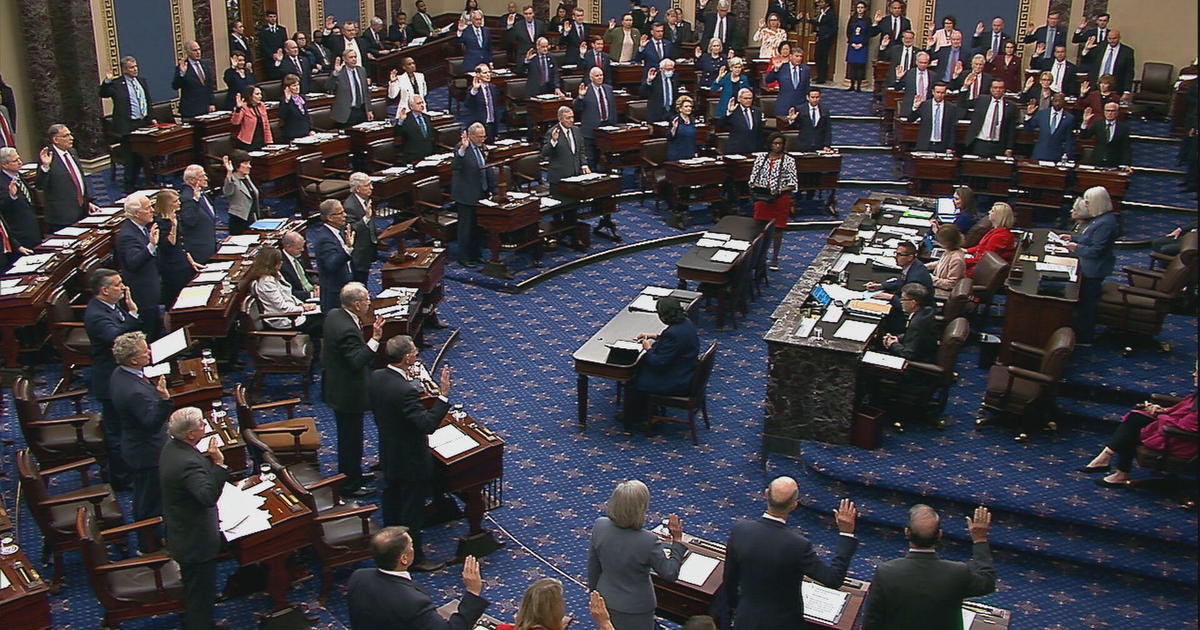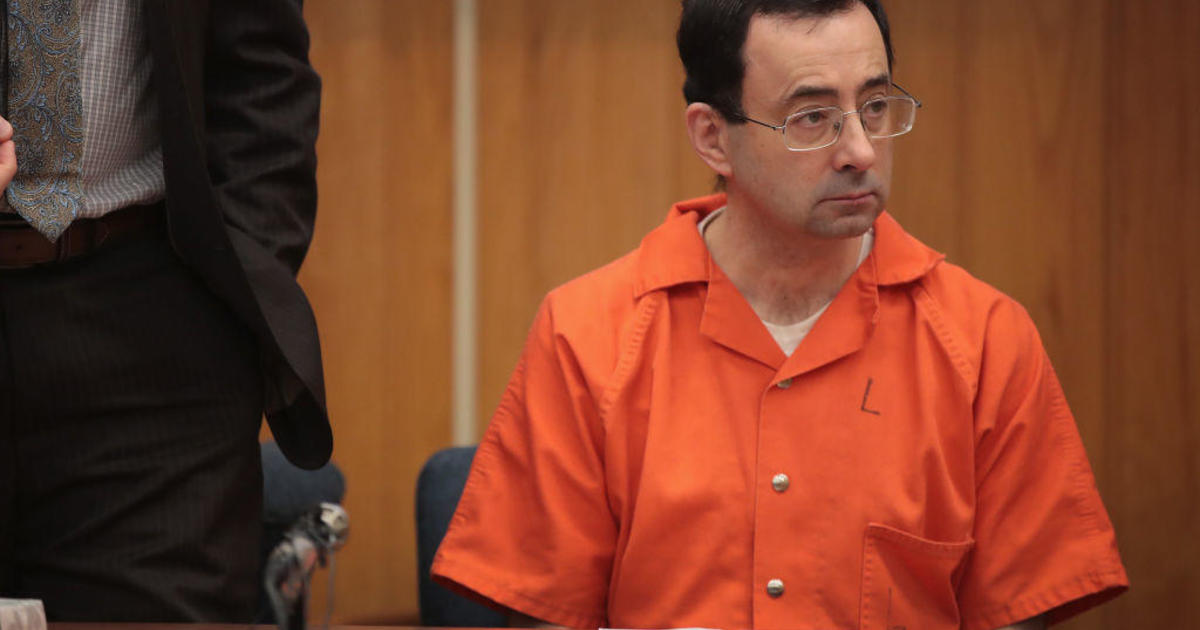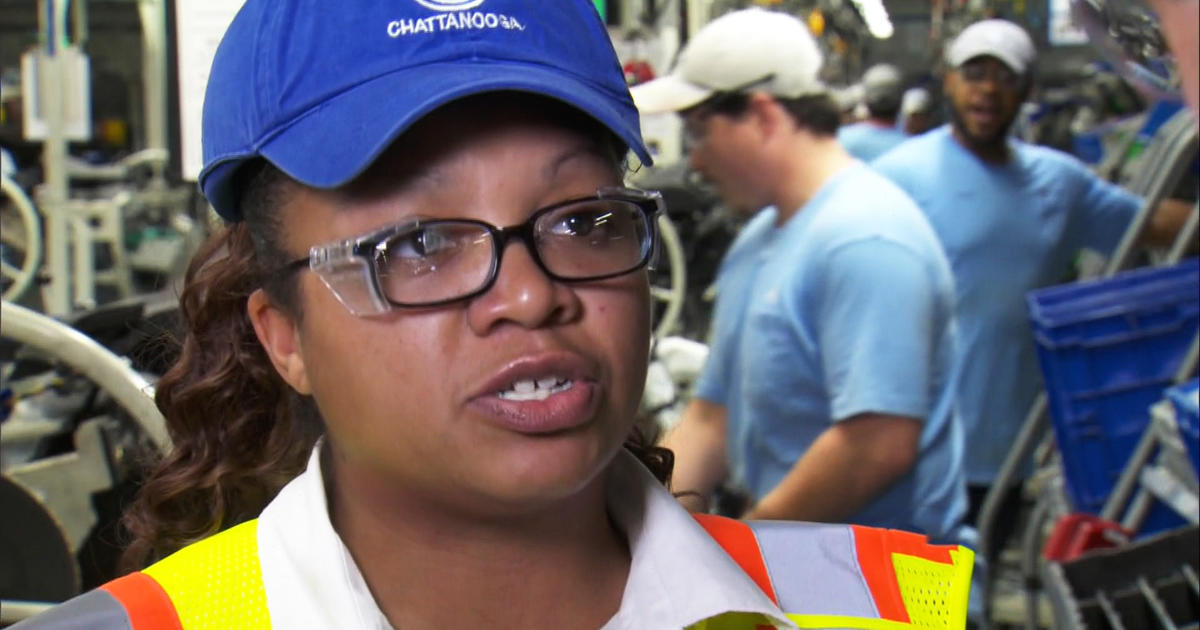Lawmakers introduce Puerto Rico statehood bill: "It's time to end 120 years of colonialism"
Washington — A bipartisan group of lawmakers introduced legislation Thursday that would admit Puerto Rico into the union as the 51st state without a referendum on the island's territorial status.
The bill was unveiled by Florida Rep. Darren Soto, a Democrat who represents parts of Orlando and its large Puerto Rican community, during a press conference in Washington attended by the island's Gov. Ricardo Rosselló, a vocal supporter of Puerto Rican statehood. If enacted, the legislation would automatically trigger the island's admission into the union, bypassing any referendum.
"I'm exited about the possibility of finally ending this historic injustice. It's time for all Puerto Ricans to be united behind a noble and Democratic effort," Soto said alongside Rosselló, local Puerto Rican leaders and Reps. Ruben Gallego, Jamie Raskin, Don Young and Jenniffer González-Colón, the island's non-voting delegate. "It's time to let the old battle lines fade away. It's time to end 120 years of colonialism."
In the past seven years, the Puerto Rican government has held two referendums on the status of the island. In both cases, voters chose statehood, but because any change in status requires Congressional approval, the results were symbolic. Boycotted by one of the main political parties and other groups, the last referendum in 2017 was marred by historically low turnout.
Although it could secure passage in the Democrat-controlled House, the legislation will almost certainly be opposed by the Trump administration and the Republican-controlled Senate. President Trump said last year he is an "absolute no" on Puerto Rican statehood, as long as critics such as San Juan's mayor remain in office.
Democratic backers of the measure said it will allow the party to send a clear message on Puerto Rico during a time when they believe the federal government is mistreating the U.S. territory, which is still recovering from a pair of powerful storms and grappling with decades of financial instability.
Since Hurricane Maria devastated the island in 2017, Congressional Democrats and many elected officials in Puerto Rico, home to approximately 3.2 million U.S. citizens, have accused the Trump administration of treating Puerto Ricans like second-class citizens. The White House's handling of recovery efforts in the aftermath of hurricanes María and Irma have been sharply criticized by some local residents, leaders and most Democrats in Congress.
On Tuesday, several media outlets reported Mr. Trump privately told Republican senators he opposed further disaster aid to the island because he believed the U.S. territory received too many federal relief funds compared to states like Texas and Florida, which have also been battered by storms in the past two years.
Puerto Rican leaders have also denounce the administration for considering diverting disaster relief funds to finance the president's long-promised wall along the U.S.-Mexico border and opposing $600 million in food assistance funding, which the White House called "excessive and unnecessary."
Because the bill would not include a referendum in which voters can opt for the change in territorial status, if any, that they desire, the legislative effort will likely be met with fierce opposition from some political leaders, citizens and groups, including pro-independence movements and people who want voters to make a decision before any change in territorial status.
Asked if it was problematic to cite the results of the 2017 referendum given the low turn out, Rosselló told CBS News the bill "ratifies" the will of the Puerto Rican people.
"Every time we start approaching a resolution to the status issue, a new excuse comes about," he said, touting the victories for the statehood options in the last two plebiscites.
"What we hope to avoid is this never-ending obstacle-imposing path towards equality for the people of Puerto Rico," he said, adding that opponents of Puerto Rican statehood should state clearly why they don't want "equality" for the island.
For decades, the Caribbean island has faced a perpetual struggle over questions of self-determination, which dates back to the late 19th century, when the U.S. acquired the territory after the Spanish-American War.
Puerto Rico currently only has a non-voting member serving in the House of Representatives. Statehood would grant Puerto Rico Congressional representation in both the Senate and House as well as a stronger influence in presidential elections.
Because they don't have voting representation in Congress, voters living in Puerto Rico and other U.S. territories are not entitled to electoral votes. Despite having non-voting representation in Congress, voters in the District of Columbia have been able to cast ballots in presidential elections since the 23rd Amendment was ratified in 1961.




